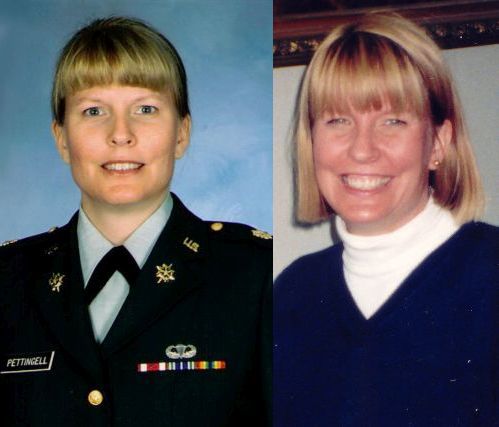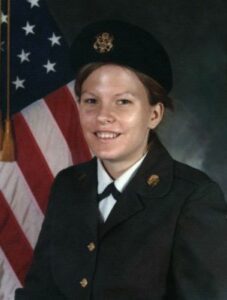 Born on Long Island, New York, in 1961, Gabrielle “Gabi” Kurg Pettingell graduated from the University of Florida in 1983 and was commissioned a second lieutenant in the US Army. In 1987, by then a captain, she resigned her Regular Army commission to join Project Star Gate as a Department of the Army civilian. For approximately four years she served as an operational remote viewer and project manager. In 1991 she left Star Gate and moved to another black intelligence program that was also in need of her many talents.
Born on Long Island, New York, in 1961, Gabrielle “Gabi” Kurg Pettingell graduated from the University of Florida in 1983 and was commissioned a second lieutenant in the US Army. In 1987, by then a captain, she resigned her Regular Army commission to join Project Star Gate as a Department of the Army civilian. For approximately four years she served as an operational remote viewer and project manager. In 1991 she left Star Gate and moved to another black intelligence program that was also in need of her many talents.

Gabi was an integral part of Star Gate during her time there. Using her exceptional remote viewing skills she provided information on targets as diverse as American hostages in Beirut, important research and development centers in the Soviet Union, military installations in sensitive areas of the Middle East, and narco-traffickers in the Carribean and Pacific regions. A number of intelligence operations were successful because of her work. Gabi introduced numerous innovations that have long since become part of the remote viewing process.
One highlight of Gabrielle’s remote viewing career came in May 1987 when she was chosen to demonstrate remote viewing to four U.S. senators in the Hart Office Building in Washington, DC. Present were Senators John Glenn, Daniel Inouye, Warren Rudmann, and William Cohen (who later became Secretary of Defense). Gabi performed a successful remote viewing session against a secret target the senators themselves picked. Partly as a result of this impressive demonstration, the senators adjusted the rest of their schedule to extend the one-hour briefing to the whole morning so they could spend more time learning about Star Gate and what it offered the intelligence community. Her performance was instrumental in gaining Congressional support for Star Gate for several years to come.
After leaving government service in the mid-1990s, she went on to earn an MBA at the Wharton School, then worked for Arthur Anderson for three years before moving with her husband and children to Moscow, Russia, where she taught modern Western business principles to aspiring Russian university students. Before departing for Russia, Gabi worked as a freelance remote viewer, and in late 1996 she provided highly accurate information about a serious crime in the American northwest.

An accomplished remote viewing teacher, she became an assistant instructor and project manager for Remote Viewing Instructional Services, Inc. after returning from Russia. During this time, Gabi was actively involved in some of the original practical applications experiments with associative remote viewing (ARV), designing and participating in pilot ARV studies that resulted in both highly significant results and financial profit.
She was a presenter at the 2001 Remote Viewing Conference, but was killed in a tragic automobile accident in Florida as she returned home from taking her daughter to Girl Scout camp just a week before the 2002 conference. At the time of her death she was the mother of three children, a Girl Scout leader, and a lieutenant colonel in the Army Reserves, for whom she taught classes in the resident portion of the Army’s Command and General Staff College.

Gabrielle Pettingell was an important resource to the remote viewing community. Besides being an outstanding teacher of the skill, she had a grasp of the “viewing” part of the process that was second to none, and an equally profound understanding of tasking and analysis, both of which are essential to success. The Gabrielle Pettingell Memorial Research Fund was created by the International Remote Viewing Association (IRVA) to honor her.
You can read more about her life here.